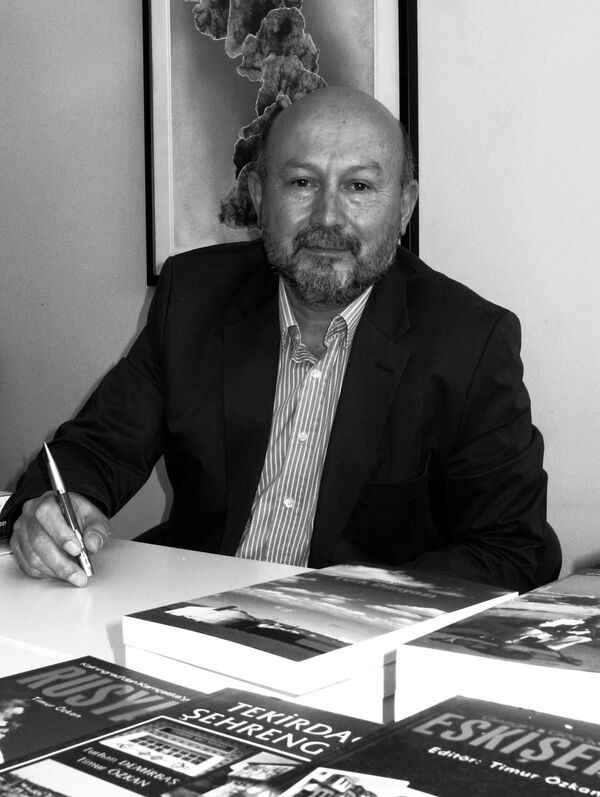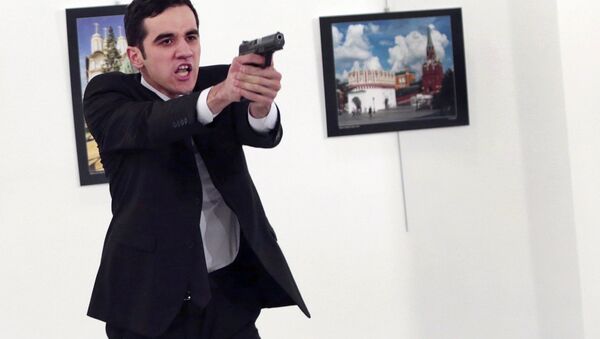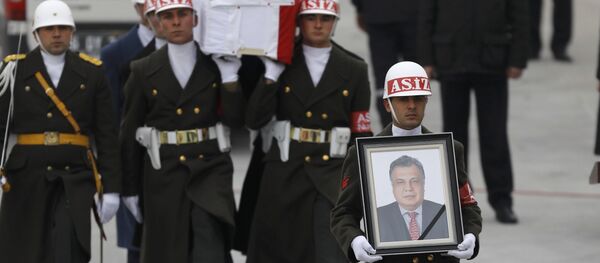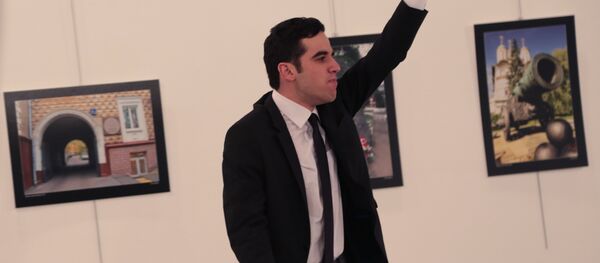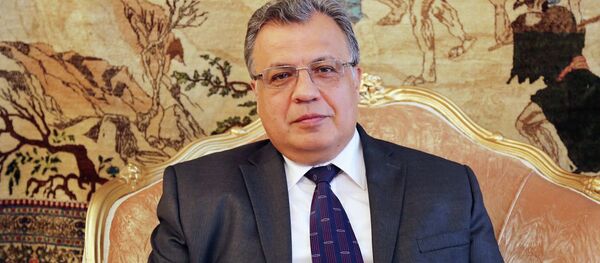On Wednesday, Kremlin Spokesman Dmitry Peskov said that the assassination of Ambassador Andrey Karlov was undoubtedly a "blow [to Turkey's] prestige."
Earlier in the day, Jabhat Fatah al-Sham (the rebranded terrorist group formerly known as al-Nusra Front) claimed responsibility for the murder. Turkish authorities have detained at least thirteen individuals in connection with the plot to kill the ambassador. Karlov was killed after being shot repeatedly by Mevlut Mert Altintas, a Turkish police officer believed to have served as a personal guard to President Erdogan on several occasions.
Timur Ozkan was the organizer of the 'Russia from Kaliningrad to Kamchatka Through the Eyes of a Traveler' exhibition at Ankara's Center for Contemporary Art, where Ambassador Karlov spent the last moments of his life. Ozkan was gracious enough to speak to Sputnik Turkey in detail about Monday's events.
More than anything, he stressed, he and his colleagues at the art gallery were saddened by the fact that an event meant to improve Russian-Turkish relations actually became the site of a terrible crime.
Recalling the origins for the idea of a Russia-themed photo exhibition in the Turkish capital, Ozkan explained that it all started with Turkish travelers sharing and discussing photos and travel notes, and organizing exhibitions to acquaint people with other countries and cultures.
Planning for the exhibition was actually put on hold amid the sharp crisis in Russian-Turkish relations that began in November 2015, after a Turkish Air Force fighter shot down a Russian bomber operating over Syria. In September 2016, with relations returning to normal, the Russian Embassy proposed moving forward with the exhibition. The exhibition was scheduled open on Monday, December 19.
Describing the events of Monday night, Ozkan, who made a short speech with Ankara's deputy mayor before Ambassador Karlov took to the podium, explained that he and others found nothing out of the ordinary in the fact that Karlov's would-be killer positioned himself behind the ambassador.
Chillingly, Ozkan recalled that "when the Ambassador began to speak, a young man, who before that did not attract our attention in any way, moved to stand behind him, something commonly done by bodyguards. We thought this was his security. Moreover, he was dressed in a classic black suit and tie, resembling the clothing worn by security officers."
The killer then began yelling his comments about Aleppo, and shot Karlov two more times as he lay limp on the floor. "He then demanded that all the guests in the hall leave, shouting 'let all the civilians leave', and asked 'if [Karlov's] security men were here?', asking them to stay…At this point, it became clear that the ambassador had arrived without personal bodyguards. Perhaps he felt that visiting the opening of a photo exhibition would not pose a threat to his security. He came only with his wife."
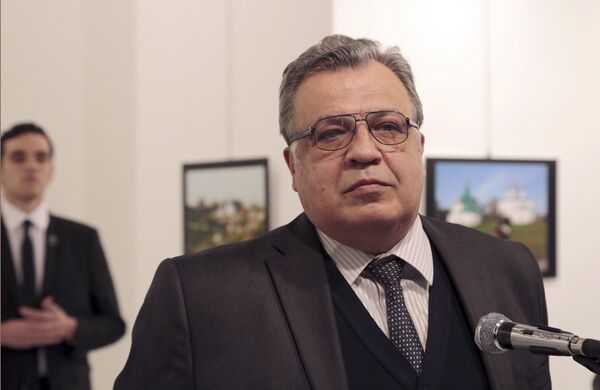
"Everyone in the hall rushed to the exit, during which time the criminal continued to shoot," Ozkan recalled. "As we later learned, 11 bullet holes had been discovered on the body of the ambassador. But the killer fired at least 25-30 rounds, shooting cocktail glasses and the photos on the walls."
"Then, the formal examination procedure began; the witnesses were taken to the Security Directorate. That is how the events unfolded on this tragic evening."
Ozkan also recalled that the ten year old son of one of the travelers whose photos were featured in the exhibition reported seeing Karlov's killer the art center on Friday, recognizing him from images in the media. This made sense, Ozkan noted, because the opening of the exhibition was actually set to take place Friday, December 16, before being carried over to Monday. But all press and social media releases about the event suggested that the opening would be on Friday. "The killer probably came to the center on Friday, before learning that the official opening would take place Monday," the organizer noted.
This version would be easy to confirm, Ozkan noted, by looking at the security tapes. He advised police to check this information, and they responded by saying that they are now closely checking the video recordings.
Ozkan expressed deep sorrow over Monday's events. "Russia," he said, "is a country of great importance to Turkey. Perhaps today's youth does not know it, but the older generation remembers that the Soviet Union was one of the first countries to open its representative office in Ankara, even before the Turkish Republic was founded."
Ultimately, he said, "we are deeply saddened and feel crushed by the realization that the ambassador, entrusted to our country by Russia, is being returned home in a coffin. It is impossible to convey the words of pain we feel."
"After all, we had hoped that our exhibition would make at least a small contribution to the development of relations between our countries. But it turned out to be the place where a horrifically cruel crime took place," Ozkan concluded.
